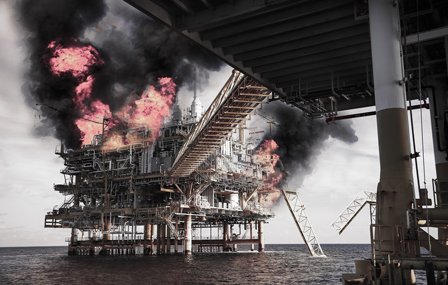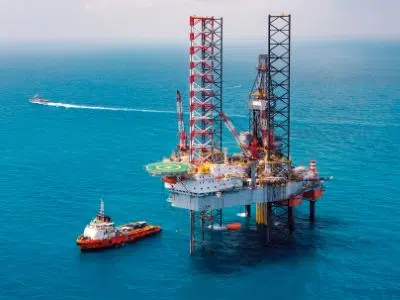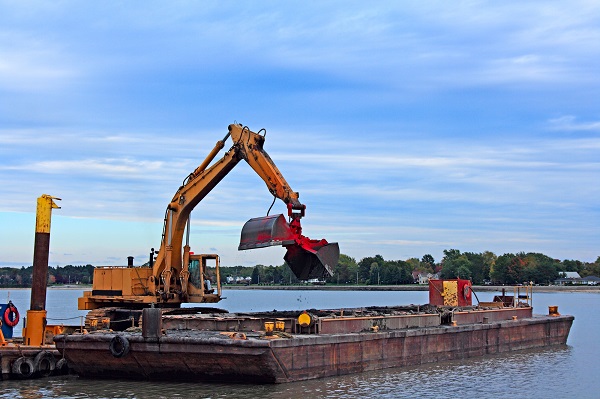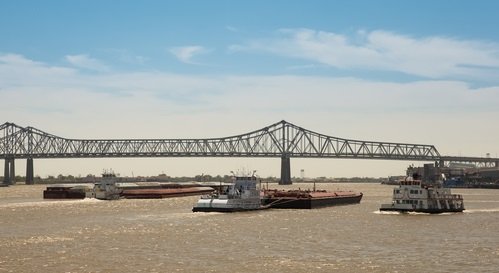Maritime Injury Lawyers
Over $1 Billion Recovered for Maritime Accident Victims. We are proud to have a reputation for aggressively fighting for the rights of injured workers.
New Orleans Maritime Injury Lawyers Fighting for Injured Workers – Lambert Zainey
Working offshore, on the docks, or aboard vessels navigating Louisiana’s intricate waterways is vital to our economy, but it comes with inherent dangers. When accidents happen, the physical, emotional, and financial consequences can be devastating. Maritime law is a unique and complex field, distinct from standard workers’ compensation or personal injury law. If you’ve been injured in a maritime setting, you need lawyers who understand this specialized area and are dedicated to protecting your rights.
For decades, Lambert Zainey has been a trusted name in New Orleans, fiercely advocating for injured maritime workers and their families throughout Louisiana and the Gulf Coast. We understand the challenges you face and have the experience, resources, and dedication to navigate the complexities of admiralty and maritime law to secure the compensation you deserve. This page serves as your central resource for understanding your rights and the types of maritime injury claims we handle.
Suffered a Maritime Injury? Don’t Wait.
On This Page
Why Choose Lambert Zainey as Your New Orleans Maritime Lawyers?
Choosing the right attorney can make all the difference in your maritime injury claim. Here’s why injured workers trust Lambert Zainey:
Understanding Maritime Law: Why It’s Different
Maritime injury law, also known as Admiralty Law, is a distinct body of federal law governing incidents that occur on navigable waters. It operates under different rules, statutes, and deadlines than typical state personal injury or workers’ compensation laws. Key differences include:
Navigating these complexities without an experienced maritime attorney can jeopardize your right to fair compensation.
Over $1 Billion Recovered for Maritime Accident Victims

Oil storage tank rupture at the Murphy Oil USA refinery in Chalmette, LA. The fastest class certification and resolution of a case of its type and magnitude to date.

Arco cryogenic platform explosion caused by improper cold cut of Southern Natural Gas pipeline. Settlement for the injured and deceased in approximately twelve months.
Who Do We Help? Maritime Workers We Represent
Lambert Zainey proudly represents a wide range of maritime workers injured in New Orleans and across the Gulf Coast, including:
Your Rights Under Maritime Law: Key Statutes and Doctrines
Understanding which laws apply to your situation is the first step toward protecting your rights. Here are the primary laws and legal doctrines governing maritime injuries:
The Jones Act: Protecting Seamen
If you qualify as a “seaman” (generally, someone who spends a significant amount of time working aboard a vessel in navigation) and were injured due to your employer’s or a co-worker’s negligence, the Jones Act allows you to sue your employer for damages. This can include compensation for lost wages (past and future), medical expenses, pain and suffering, and disability.
Unseaworthiness Claims: A Vessel Owner’s Duty
Vessel owners have an absolute duty to provide a “seaworthy” vessel. This means the vessel, its equipment, and its crew must be reasonably fit for their intended purpose. If your injury was caused by an unseaworthy condition (like faulty equipment, inadequate crew, or unsafe procedures), you may have a claim against the vessel owner, regardless of negligence.
Maintenance and Cure: Essential Support During Recovery
Injured seamen are generally entitled to “Maintenance” (payments covering reasonable living expenses like rent and food) and “Cure” (payments for necessary medical treatment) until they reach Maximum Medical Improvement (MMI), regardless of who was at fault for the injury. Employers must provide these benefits promptly.
Longshore and Harbor Workers’ Compensation Act (LHWCA): Covering Dockworkers & More
This federal act provides benefits (similar to workers’ compensation) for injured maritime workers who are not seamen, such as dockworkers, shipbuilders, and harbor construction workers injured on or near navigable waters. It covers medical expenses and provides compensation for lost wages. In some cases, LHWCA-covered workers can also pursue third-party claims against negligent parties other than their employer.
Death on the High Seas Act (DOHSA): Claims for Fatal Accidents Offshore
DOHSA governs claims for wrongful death occurring more than three nautical miles offshore. It allows surviving family members to recover specific types of damages, primarily pecuniary (financial) losses.
Outer Continental Shelf Lands Act (OCSLA): Offshore Platform Injuries
OCSLA often applies to injuries occurring on fixed platforms or structures attached to the seabed on the Outer Continental Shelf (beyond state waters). It typically adopts the law of the adjacent state (like Louisiana’s LHWCA provisions) for injury claims.
Offshore Injuries (Platforms, Rigs & Vessels)
The Gulf of Mexico is a hub of offshore activity. We represent workers injured on fixed platforms, jack-up rigs, drillships, supply boats (OSVs), crew boats, lift boats, and helicopters servicing the offshore industry. These cases often involve complex interactions between the Jones Act, LHWCA, and the Outer Continental Shelf Lands Act (OCSLA).
Common Maritime Accidents and Injuries We Handle
Maritime work environments present unique hazards. We have extensive experience handling claims arising from all types of maritime accidents, including the below. These accidents can lead to severe injuries, including spinal cord damage, traumatic brain injuries, burns, amputations, broken bones, and tragically, fatalities.
These accidents can lead to severe injuries, including spinal cord damage, traumatic brain injuries, burns, amputations, broken bones, and tragically, fatalities.
>> See more about Common Maritime Injuries and Accident Types.
Navigating Inland Waterway and River Accidents
Louisiana’s rivers, canals, and the Intracoastal Waterway are bustling with commercial traffic, including tugboats, barges, and dredges. Accidents on these inland waters present their own unique challenges and are often governed by the Jones Act or general maritime law. We understand the specific hazards of inland navigation and represent workers injured on these vital routes.
What Compensation Can Be Recovered?
Depending on the specific laws that apply (Jones Act, LHWCA, Unseaworthiness, etc.) and the facts of your case, you may be entitled to recover damages for:
In cases of fatal accidents, surviving family members may be able to pursue wrongful death claims for financial losses and potentially loss of consortium or survivor’s grief under applicable laws like DOHSA or the Jones Act.
Frequently Asked Questions about Maritime Injuries
Knowing your rights is the first step toward securing fair compensation after a maritime injury. This section answers key questions to empower you with the information you need to protect your claim.
What Our Clients’ Say About Us
NATIONALLY RECOGNIZED ATTORNEYS
CONTACT US
Our experienced attorneys are here to guide you through every step of the process, from initial consultation to settlement or trial.
Free Case Review
Fill out the form below to contact Lambert Zainey and schedule a free, confidential consultation and discuss your case with an experienced attorney.






















